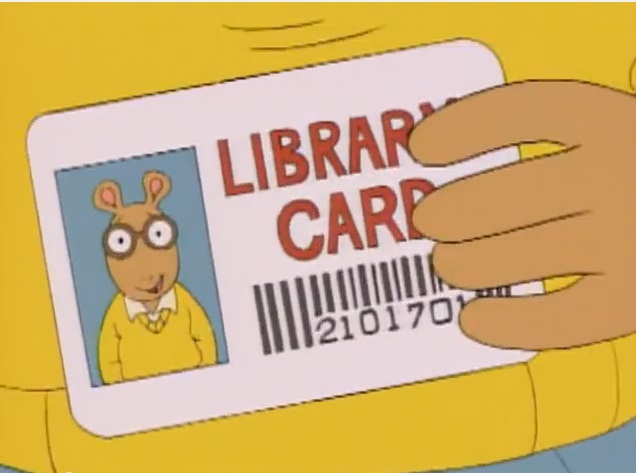- Ireland and Italy offer citizenship by descent, but it is a long process
- The Netherlands and the US have a treaty called DAFT that allows you to start a business in NL
- France offers a self employment visa
- Check skill shortage lists for countries of interest - almost all European countries need skilled trades, truck drivers, etc. that wouldn’t require a degree
- Study abroad; it’s possible you could apply and receive funding for a degree since many countries have free education + work study arrangements for your living expenses
- Teach English abroad
- Look at international NGOs, you could possibly get hired as an admin/etc. without a degree but that might be a stretch
- 1 Post
- 98 Comments

 4·13 days ago
4·13 days agoWe have similar taste and you need to listen to Kalush (and Kalush Orchestra) - Ukrainian hip hop! The “Orchestra” group has more folk influences but all of it is just banger after banger. I don’t understand a word of Ukrainian but I love these guys.

 5·1 month ago
5·1 month agoOr push him into the train and laugh about it…

 5·1 month ago
5·1 month agoIt’s all infuriating! And we keep paying these goons more and more of our tax dollars - new hires are up to $150k I think - and they can’t even be bothered to show up when a crime is happening! Or follow laws themselves?! Make it make sense. They’ve been on a silent strike since 2020 but the mayor and city council keep throwing our money at them.

 11·1 month ago
11·1 month agoDon’t you love how SPD will release video immediately if it’s good PR? It’s nice they found time to help this guy between murdering pedestrians (and then laughing about it), sexually harassing their own cops, and mocking the teenagers they shoot and kill.
(Sources if anyone wants them:)
https://www.cnn.com/2023/09/14/us/seattle-police-officer-phone-comments-woman-killed/index.html

 5·2 months ago
5·2 months agoSeattle’s public library system was attacked in May, and it took about four months to restore all services. It sucked. We couldn’t use Libby, print, place new holds, or return our physical books. Ransoming hospitals and libraries is such a scumbag move. I hope librarians (and their IT folks) across the country are sharing their experiences with this so systems can get back up more quickly.

 192·2 months ago
192·2 months agoNot a “song” per se, but Black Thought freestyling effortlessly for like 10 minutes straight is impressive AF: https://youtu.be/prmQgSpV3fA
For context, that show asks everybody to freestyle and some refuse, some do a few bars, but nobody goes for 10 minutes, lol.
For an actual song, and you wanna talk art, Blackalicious - Attica Black. Really love the sampling and the musicality of it, there are so many layers and it’s fun to listen to. https://youtu.be/qHRxorG8ABs

 15·2 months ago
15·2 months agoIf anyone has ever worked or talked with a refugee or asylum seeker, none of this is surprising. The US gives so little assistance to resettling refugees that it’s truly embarrassing.
They get three months of bare minimum help - often through religious “resettlement” groups who receive the funds. After three months, they are expected to get a job, pay their own rent, navigate life in the US (including driving), and speak English well enough to do all of that.
They get almost no extra healthcare, rent assistance, food assistance, trauma therapy, or anything else beyond that point unless they are able to navigate the systems to do so. And to be honest, that is difficult enough for someone born here. It’s almost impossible for a new refugee. What little assistance they do get after the first 90 days is often due to community and church groups, not the US government.
Theoretically, they have case workers etc. through the resettlement agencies, but it’s a total mess. It’s an absolute disgrace, and we can and should be doing better to support refugees and asylum seekers. Especially if they are going to get dumped in a small town with no resources. I really understand residents’ frustrations, but I also hope this ugly episode teaches people how woefully inadequate our refugee program is - and helps them advocate for change! We can do better.

 17·3 months ago
17·3 months agoI think others have covered the economies of scale and niche products creating the disparity.
But I wanted to suggest that if your grandpa is regularly eating gluten free bread, we have found that making it at home is SO much more affordable than buying a loaf at the store. (Even though gluten free flour is also more expensive.) Most of the gluten free flours have their own sandwich bread recipe, either on the bag or their website. I don’t know what flours you have access to, but they can be wildly different blends, so using their tested recipes is always best.
We’ve mastered our favorite so it takes only 15 minutes of “work” and then just time in the oven. It’s also much better than store bought! I don’t know if that’s possible for you, but it could be a lovely weekly ritual for you and your grandpa.
Also, to anyone suggesting we just eat rice and beans, I’m an old celiac. We went without bread, pasta, cake, pastries, cookies, brownies, pizza, and crackers before these products came to market. These are mostly “fun” foods that I don’t eat regularly, but usually pop up in social situations. Do you know how many sad birthdays with no cake we’ve had? How often we’ve watched our friends and family eat things we could never have? I am so grateful to the “fad” gluten free people who made it possible to have culturally/socially important foods we were missing out on for decades!!

 5·4 months ago
5·4 months agoOh yes, ours is a chair thief too! Little stinkers.

 10·4 months ago
10·4 months agoOur 15 year old has a new habit of coming into the kitchen every time we do, and stretching out directly in the middle of the walkway so he is in the way at all times. We have a pretty decent sized space, but he’s a very long cat when he wants to be. I feel like he defies the laws of physics because I don’t understand how he’s in the way literally everywhere. It makes me crazy.
So when we cook, which is usually 2-3 times a day, it’s like, need to open the oven? Cat. Need to get into the fridge? Cat! Sink? Cat. Oh, I need to dry my hands? Cat. We have definitely stepped on him by accident since he started doing this, but he’s still undeterred. He has bad arthritis, so I don’t mind when he sits in front of the oven when it’s on, because at least that one makes sense. (He has multiple heated beds too; don’t feel bad for him.) But it’s like, I would love to be able to grab water from the kitchen or feed the dog or do literally anything in there without almost stepping on my cat.

 141·4 months ago
141·4 months agoWhat a tragedy. I hope they push out national changes so her death wasn’t a complete waste. Refusing a feeding tube is bananas.
Here in the US, the discourse around ME/CFS is changing significantly now that doctors are constantly encountering long COVID and sequelae of other viral illnesses. (Another great example of this phenomenon is the sequelae like eye and joint problems among Ebola survivors, which didn’t exist as a patient cohort until 2015.) It’s unfortunate that so many people have long COVID, but the volume of patients is definitely shaking up how doctors are thinking about “mystery illnesses.” When millions of people are following a pattern, and the sample sizes are big enough to prove things, things change. I hope that MS/CFS sufferers benefit from all of this new research and training.

 1·4 months ago
1·4 months agoMy pleasure. Let me know if there are other resources I can recommend!

 1·4 months ago
1·4 months agoWe ALL need to hear it! You’re so welcome. I try to keep reminders near me when hustle culture rears its head, and it always helps :)

 9·4 months ago
9·4 months agoWhen we first moved to Seattle, there was no such thing as fire season and no need for AC. Our AQI this year so far has been surprisingly terrific, but I’m sure we will get bad smoke before the rain comes again. I’m really feeling nostalgic for those long summers of perfect weather. It’s so stressful - especially with family who has asthma. Hope y’all are all hanging in there!

 3·4 months ago
3·4 months agoI always find that starting any new job is exhausting! There is so much to learn - not even the “work” itself, but processes, personalities, and systems that differ from workplace to workplace. Unless you are struggling hard financially, give yourself some time. For me, it takes at least 4-6 months in a new job to feel ready to add something else. (Now that I own my own business, it’s just adding the next thing in the business…then 4-6 months later, the next thing…). You will have to feel out your own balance and where you can draw the line. I don’t think it’s a bad idea to make more money, if that’s a goal. But you can’t do it at the expense of your sanity, relationships, health, etc. Make it sustainable.
I’m in the US for context, but have lived all over the world, and don’t participate in the hustle culture here. I work hard for my clients and there are crunch times, but on average it’s about 30-35 hours a week. That’s a sweet spot for me! I hope you find yours.

 3·4 months ago
3·4 months agoNo, but I think about it all the time!!! I’m not an engineer but if anyone does sketch or attempt it, please post it, we would love to see it!

 9·4 months ago
9·4 months agoWillpower IS a thing and there is some really interesting research about how it is an exhaustible psychological “resource” we have! In other words, we can exercise our willpower up to a point, but it’s not infinite. Highly recommend reading “Switch” by Chip and Dan Health which goes into willpower as a concept if you are interested in this.

 25·4 months ago
25·4 months agoI don’t know about the notes, but I wanted to say that it takes time and effort to unlearn this idea that we are supposed to be productive all the time. This is a lie that many powerful people want us to internalize so we work ourselves to death, and it’s very insidious and omnipresent. It’s become a perverse “value” in our society at large and something to be proud of.
But you are not a machine. You’re a person. And that means you need and deserve rest and comfort.
You have inherent worth outside of your productivity, how hard you work, or how much money you make.
Those metrics don’t tell us anything about how you are as a person, your values, your kindness, your strengths, the joy you bring others.
ALL of that stuff has value. Real true value. You have to start challenging these beliefs about your worthiness. Because you are already worthy.
Some further reading/resources:
- The Body Is Not An Apology
- Rest is Resistance
- Burnout: The Secret to Unlocking the Stress Cycle


There are two ways to build community - one is doing it from scratch, and one is finding a community and joining it. So, start with what’s easy. Are there existing communities of people you could join, based on your interests? (For example: churches, book clubs, bands, athletic groups, etc?) Since you’re a plant nerd like me, check out nonprofits that need volunteers for gardening or landscaping. Check Meetup, check local event calendars, ask your friends what they’re up to, and invite yourself along.
Building community from scratch takes time, but it can be done. It starts with introducing yourself to your neighbors. Does anyone pass by when you’re in the garden? Maybe the same person walking their dog every day? Stop and say hi to them. Learn their names. Ask for their contact info. The more time you spend outside, the more you are going to see neighbors you can “bump into.”
Once you have their contact info, email or text them when you need something, or there is a cool event. You can be cliche; ask for a cup of sugar and make small talk. Or bring cookies to that reclusive neighbor you’re never met. Here are some emails I’ve gotten from my neighbors this week: a pizza school fundraiser; a car was broken into; beach pictures from a past neighbor who moved to Oregon in 2023; someone has extra plant starts; a new restaurant just opened.
You also have to be the person that introduces your neighbors to each other - “have you met X yet?” or “do you know who lives over at 123?” Invite them over. Have a neighborhood happy hour, outside, in the street - other neighbors will come out and you can meet them too, get their contact info, and make sure they get added to the list for the next one.
I live on an extraordinary block with amazing neighbors - we watch each others’ pets, water each others’ plants, have regular outdoor happy hours, have an annual block party, go out to bars/shows/meals with each other, have craft nights, etc. They are now some of my closest friends! But it took years (and COVID stir-craziness) to get to this point. It isn’t a fast process, but now we have a real, solid community. We are ages 37-77 and I think at least 3 of them have my house keys, lol.
I hope this helps! Don’t be afraid to put yourself out there. A LOT of people are craving connection right now so even when it feels clunky, it’s working.